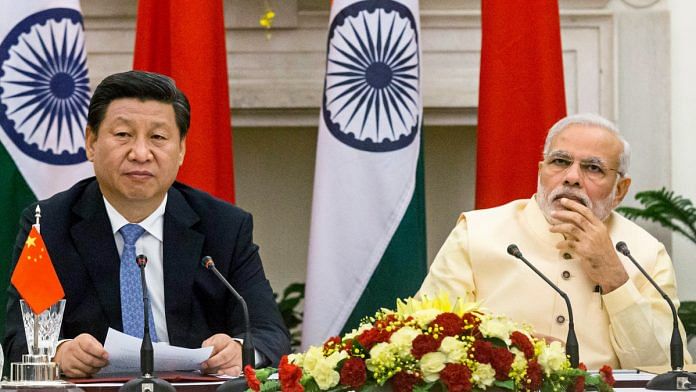India is concerned that the US might delay July’s Afghan elections and bring in a caretaker govt, in a bid to rush its withdrawal from the war-torn country.
New Delhi: With the Afghan government in tow, India has reached out to arch-rival China for a dialogue on the future of Afghanistan, as talks between the US and the Taliban are believed to be progressing towards a successful conclusion.
India is worried that post the withdrawal of US troops from Afghanistan, the country will plunge into another crisis, threatening New Delhi’s investments in its development while endangering the security aspect of South Asia. The US plans to halve its 17, 000 troops present in Afghanistan right now.
“We are now discussing the situation with China that is emerging in Afghanistan, which we are closely monitoring. We have been already been discussing the matter with Russia and Iran, but I think we should include China also. We plan to discuss this as part of our bilateral engagement with China,” a top government official involved in the discussions told ThePrint.
Also read: If India wants to be a key player in Afghanistan, it has to engage with the Taliban
The official also expressed concerned that the Donald Trump administration may try to postpone the Afghanistan elections coming up in July, and put in place a caretaker government, in an effort to conclude a “rushed” deal with the Taliban and eventually pull out from the country. This, the official said, is something that is being steered by Pakistan, which is also party to the talks between America and the Taliban.
“The presidential elections should happen in July as scheduled. We do not favour any interim arrangement which the US and Pakistan are trying to put in place. We believe that at this time, any pronouncement in haste could be counter-productive,” the official said.
Where things stand
Earlier this week, the US Special Representative for Afghanistan Reconciliation, Zalmay Khalilzad, announced that America has made “significant progress” in the talks with the Taliban. However, he also said that there’s still work to be done to achieve a “complete ceasefire”.
Meanwhile, the chief negotiator for the Taliban, Mullah Abdul Ghani Baradar, who was released from a Pakistani prison last October, said in Doha that they have negotiated a deal with the US under which American troops will leave the country in the next 18 months.
Interestingly, the Afghan government, led by President Ashraf Ghani, is not part of this dialogue, as neither the US nor the Taliban want the democratically-elected government to be on the negotiating table. As a result, senior Afghan leaders, including former President Hamid Karzai, are shuttling between Kabul and New Delhi to establish a separate dialogue mechanism.
“Many senior leaders from Afghanistan, including the Pashtun leaders and those from other rebel factions, are coming to India. We are engaging with them on a regular basis,” the official stated.
India’s stance
India has maintained that it will only take part in dialogues which will be Afghan-led and Afghan-owned. New Delhi also has a policy that it will not interact with the Taliban unless urged by the Afghan government.
Since 2001, when US waged a war against the Taliban, India has invested around $3 billion in Afghanistan, of which $2 billion has already been used towards capacity and infrastructure building.
Also read: NATO does not want India at Afghanistan peace talks table
New Delhi, sources said, is not ruling out halting the grant of development, in the event the US pulls out in haste, empowering the Taliban.
In November last year, India took part in the Russian-organised Moscow format talks, but at a non-official level. India was represented by Amar Sinha, its former envoy to Afghanistan, and T.C.A. Raghavan, the former Indian High Commissioner to Pakistan. The talks included the Afghan government-led ‘High Peace Council’ as well as the Taliban.
Raghavan, who is now director-general of the Indian Council of World Affairs, told ThePrint: “The US is putting a lot of pressure to secure a deal for itself. India’s biggest investment has been winning of friends across the entire spectrum of Afghanistan. That has paid huge dividends and India will not let the situation go out of hand.”




If India allows China to have access to Bangladesh through a fly over between Nepal and Bangladesh, the doklam issue will die and India can have access to Afghanistan via wakhan corridor instead of relying on Iran always through the sea
Unclear how responsive China will be. It wants India to sign the NPT, presumably after giving up its nuclear weapons.